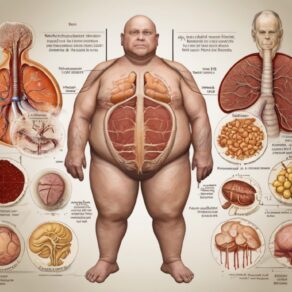At the heart of cellular energy production lies the Krebs cycle, a fundamental metabolic pathway essential for generating adenosine triphosphate (ATP). When this intricate cycle encounters dysfunction, it disrupts the finely tuned balance of cellular processes. This article delves into the complexities of Krebs cycle dysfunction, exploring its mechanisms, consequences, and potential therapeutic avenues.
I. Understanding the Krebs Cycle: A. Basics of Cellular Respiration:
- Overview of aerobic respiration
- The role of the Krebs cycle in energy production
- Connection with electron transport chain and oxidative phosphorylation
B. Key Components of the Krebs Cycle:
- Acetyl-CoA and its entry into the cycle
- Steps and intermediates in the cycle
- Production of NADH, FADH2, and GTP
II. Mechanisms of Krebs Cycle Dysfunction: A. Genetic Factors:
- Inherited metabolic disorders affecting Krebs cycle enzymes
- Mutations and their impact on enzyme function
- Rare genetic conditions leading to Krebs cycle dysfunction
B. Metabolite Imbalances:
- Accumulation or deficiency of key metabolites
- Impaired substrate availability for the cycle
- Altered redox balance affecting NAD+ and FAD
C. Environmental and Lifestyle Factors:
- Impact of nutrient deficiencies on Krebs cycle function
- Oxidative stress and its role in dysfunction
- Influence of toxins and pollutants on mitochondrial health
III. Consequences of Krebs Cycle Dysfunction: A. Impaired ATP Production:
- Decreased energy availability for cellular processes
- Mitochondrial dysfunction and its role in ATP synthesis
B. Accumulation of Intermediates:
- Buildup of metabolites leading to cellular toxicity
- Disruption of cellular homeostasis
C. Mitochondrial Dysfunction:
- Role in cellular apoptosis and necrosis
- Impact on overall cellular health and function
IV. Diagnostic Approaches: A. Metabolomic Profiling:
- Identification of metabolite imbalances
- Targeted analysis of Krebs cycle intermediates
B. Genetic Testing:
- Uncovering mutations in Krebs cycle enzymes
- Diagnosis of inherited metabolic disorders
C. Functional Assessments:
- Mitochondrial function testing
- Measures of ATP production and redox balance
V. Therapeutic Strategies: A. Targeted Nutritional Interventions:
- Supplementing deficient metabolites
- Mitochondrial support through diet
B. Pharmacological Approaches:
- Developing drugs targeting specific enzymes
- Modulating redox balance for improved Krebs cycle function
C. Emerging Therapies:
- Gene therapy for genetic disorders
- Innovative approaches in mitochondrial medicine
Conclusion: Krebs cycle dysfunction, whether influenced by genetic, metabolic, or environmental factors, poses a significant challenge to cellular energy production and overall health. By unraveling its mysteries, we pave the way for targeted diagnostic approaches and innovative therapeutic strategies, bringing us closer to understanding and mitigating the impact of Krebs cycle dysfunction on cellular energy dynamics.



